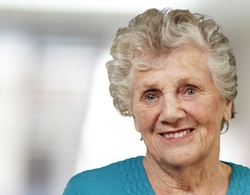For years, I’ve found the best way to illustrate what’s going on at the Harvard Extension School is to talk about the students and their experiences. Through interviews, personal blogs, emails, and message board postings I have been able to highlight both the good and the bad using voices that are totally authentic.
For instance, several years ago I spotted this blog post by a student who had just finished the Harvard ALB program. He was ecstatic about his experience learning under some of Harvard’s renowned faculty:
Overall I feel that I received the best undergraduate education possible. It was a great honor to study and then be a TA under Tom Hayes and run the Physics 123 lab — I think it’s entirely possible that Tom is the best introductory circuit design teacher in the world, and I know I am in great company. It was also a great honor to study cyberlaw at the Berkman center of Harvard law — as an undergraduate, I was able to take more IP, patent, copyright and digital law classes than are available at most law schools, including Larry Lessig’s former class “The Technology and Politics of Control”. I also learned Spanish with Professora Zetterstrand, studied the history of Boston under Robert Allison, and of course studied number theory, probability, topology, calculus, linear algebra, group theory, graph theory, etc. under professors Martinez, Boller, Winters, Bamberg, Towne. Astronomy at the Harvard Smithsonian Center for Astrophysics, Physics in the science center… comparative religious ethics and modern/contemporary American fiction in Harvard Hall. Museum studies with Mary Malloy (and the future directors of a couple dozen museums in the museum studies program), game theory with Neugeboren (who himself studied under Schelling, whose son Robert is also a close personal friend), psychology under Fersch, and the history of electronic music with Marshall all were brilliant courses also. So many of these professors were the best at what they do — leaders in their fields, the ones who wrote the books. And even though this was a “night school” program, Harvard refused to lower the bar and never failed to challenge me; many of the professors talked about how the curriculum in the college vs. night school was exactly the same, and in a number of cases the student projects and work in the night school exceeded that produced by the day students.
It’s through other user stories that I’ve been able to understand the problems with distance education at the Harvard Extension School. A group of students commenting on their distance education experience lamented the lack of interaction with their professors, despite the Extension School’s promise of “Harvard faculty and rigorous academics.”
User stories in other fields
User stories aren’t just limited to higher education. Through blogs and online reviews it’s possible to learn about all kinds of products, services, and new ways of doing things. The people telling the stories are often customers and people who practice/experience whatever they happen to be talking about.

One thing I hope to do with my nascent publishing venture is to highlight the user stories of some of my readers. The books are intended to educate people on a variety of mildly complex topics, ranging from digital technologies to science and medicine. Many readers are coming to these topics and have basic questions (“What is LinkedIn” or “What is C. diff“). I have begun to highlight some of the reviews on the book websites, but have also taken the time to talk to readers and highlighting their questions. Then there is the C. diff book, which highlights real C. diff case studies.
The next frontier for such user stories may be video. I have already found one YouTube video about one of my books and I think other people will take this route to share their experiences because it’s so easy to create the videos on a phone or computer.